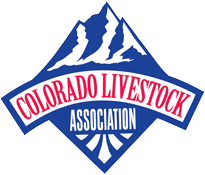Beef and dairy industries unify voice through quality assurance collaboration.
Libby Bigler, Colorado Beef Quality Assurance Coordinator
There is no doubt that cattle are a uniquely productive species; one that can produce an astounding 27,000 pounds of milk annually, as well as turn otherwise unproductive ground into high quality protein products. It’s these unique abilities that created an alignment between the National Dairy Farmers Assuring Responsible Management (FARM) program and the National Beef Quality Assurance (BQA) program.
As part of this collaboration, in January of 2016, the National BQA Advisory committee approved an expansion to the current Dairy BQA program, integrating FARM’s upcoming 3.0 version into its Dairy BQA certification guidelines. Beginning January 2017, any dairy producer that is evaluated using FARM 3.0 will also receive a BQA certification.
Emily Meredith, Chief of Staff and former Vice President of Animal Care for the National Milk Producers Federation (NMPF), said that because dairy cows eventually become beef, it is crucial for the beef and dairy industries to find ways to work together.
“There are many synergies between BQA and the FARM program,” Meredith said in recent edition of the online publication Beef Issues Quarterly. “Our collaboration has centered on identifying our similarities and working to maximize those… to ensure the highest quality beef supply possible.”
Merging Animal Care Programs
The National Dairy FARM program goes through an update process every three years. Although the program’s focus remains distinctly on animal care principles that are key to dairy production, the revision committee, which consists of NMPF’s Board of Directors along with a public comment period, recognized the importance of the dairy industry to the beef supply.
“Dairy animals have a dual purpose,” said Chase DeCoite, Associate Director of BQA. “After spending their lives producing milk, dairy animals work their way into the beef supply chain, and consequently, dairy producers participate in the beef checkoff. The checkoff-funded BQA program has long felt it was important to offer dairy producers the same resources and information as it does to beef producers.”
Through collaboration with National BQA, steps were then taken to include additional resources and references in the dairy beef section of the new edition of the FARM 3.0 program’s Animal Care Manual. Changes will include guidelines surrounding fitness for transport, treatment of special needs cattle and proper administration of injectable health products. A stockmanship training component will also be required. It’s these particular updates that made the case for the National BQA Advisory Committee to approve FARM 3.0 as an equivalent to BQA certification.
Collaboration to Target Crossover Issues
The collaboration between NMPF’s FARM program and the National BQA program is a step in the right direction for animal agriculture. Both the dairy and beef industries have been challenged to address similar consumer concerns. With this new unification, both industries will be better equipped to answer the tough questions.
“The beef industry faces many of the same pressures as dairy,” DeCoite said. “Specifically, we see a lot of questions from consumers and retail partners about antibiotic use and animal welfare….BQA and FARM are answering these questions and concerns.”
In January 2017, consumers will be able to hear a more cohesive voice from both the dairy and beef sides of the cattle business through this new collaboration. For dairy producers, the process to earn a BQA certification is simple. Farms that are evaluated under FARM 3.0 will automatically qualify as BQA Certified operations. Once a FARM evaluation is completed, the evaluation status will be reported to Colorado BQA, who will process the dairy’s BQA certificate and send it to the farm to keep on file. No additional steps are required.The new process will be a convenient way to assure the quality of the beef produced on U.S. dairy farms, while concurrently assuring animal health and wellbeing.
“BQA has long been committed to providing producers with the tools, resources and materials to improve their operations,” DeCoite said. “We see this partnership as the next step in that commitment… to provide high-quality, wholesome, delicious milk – and meat!”
